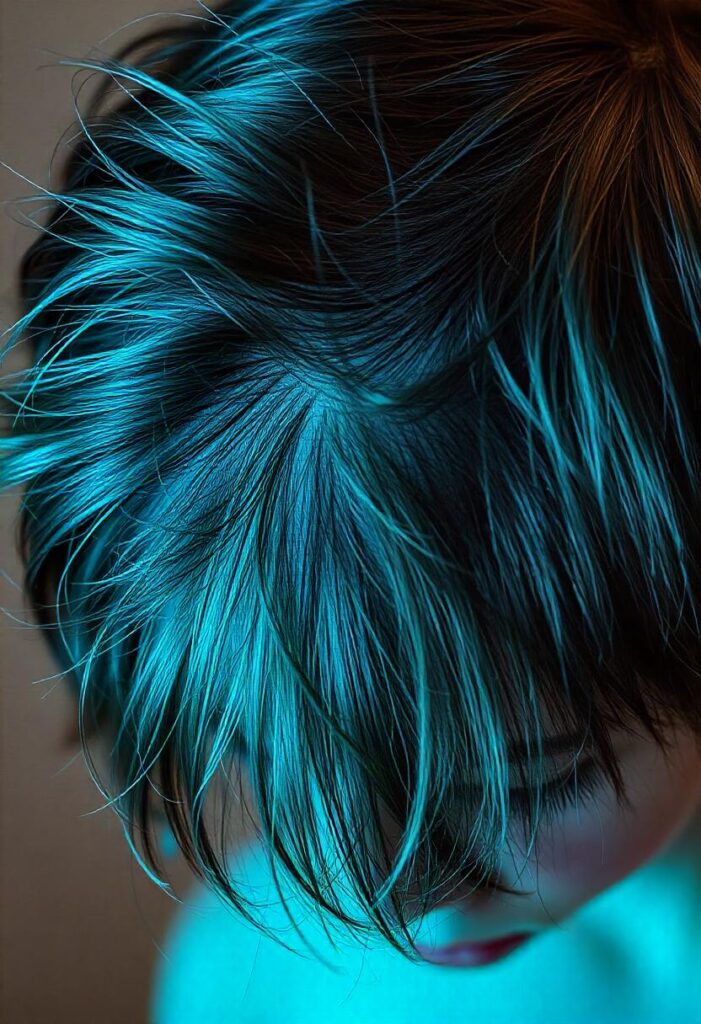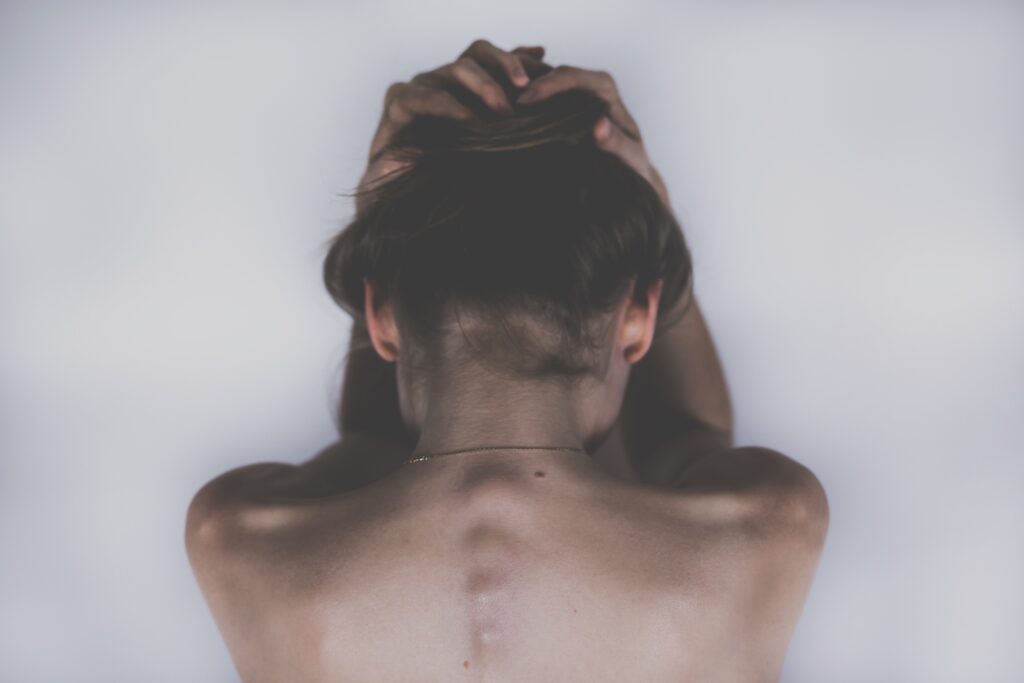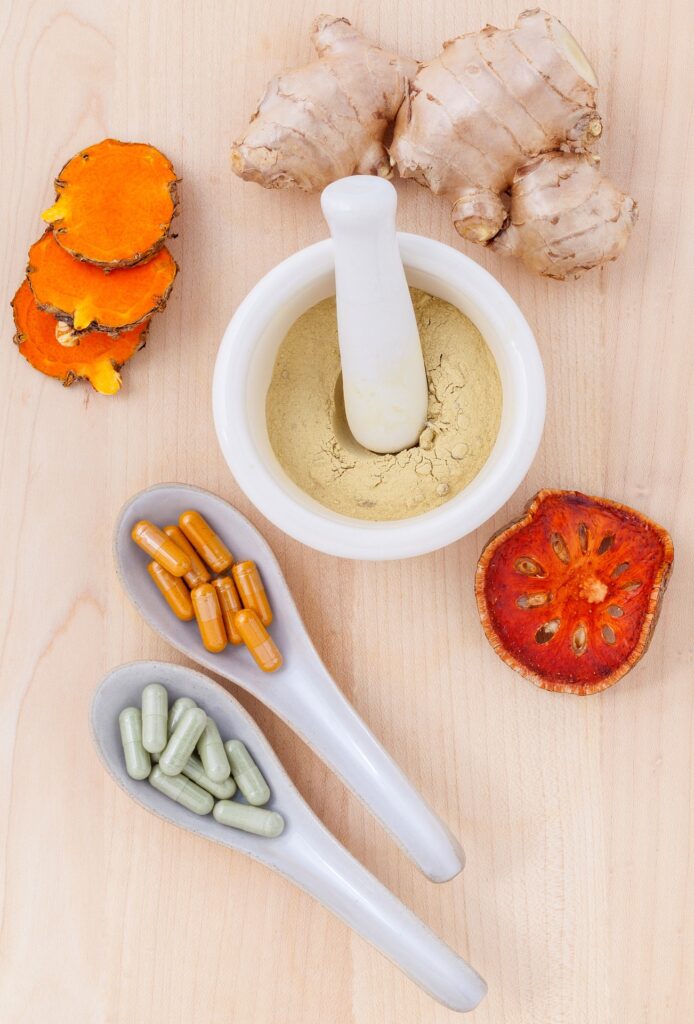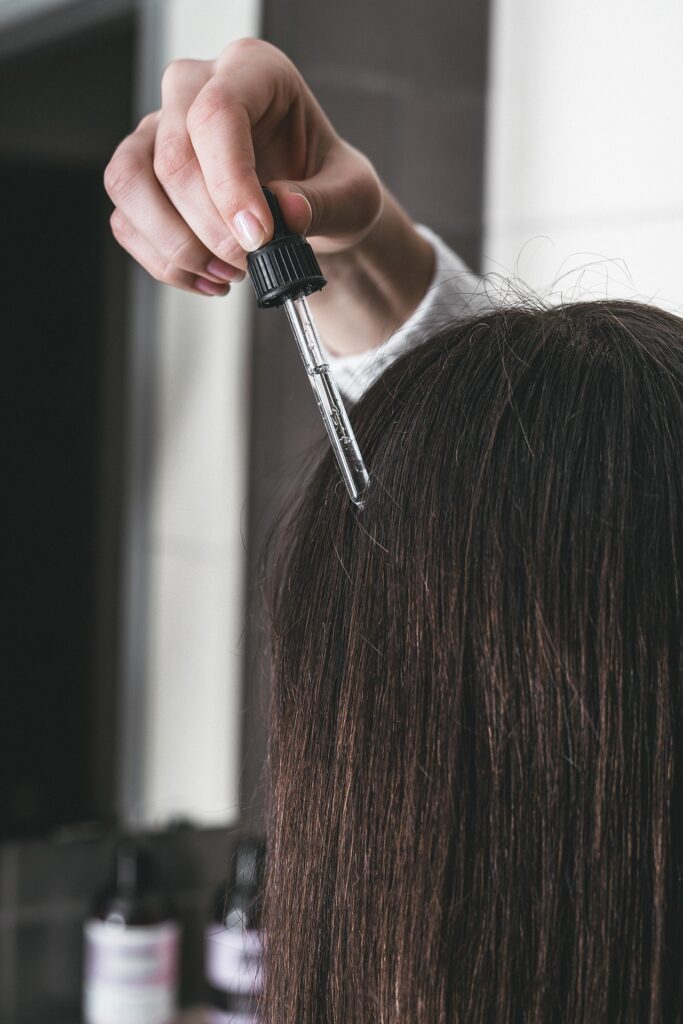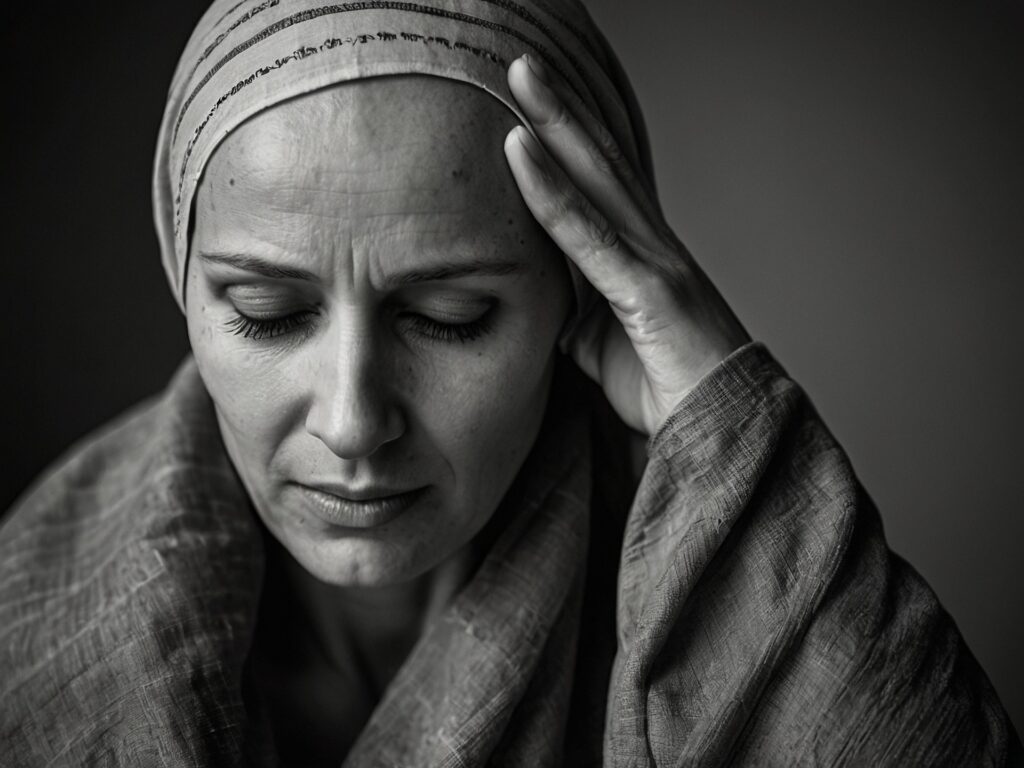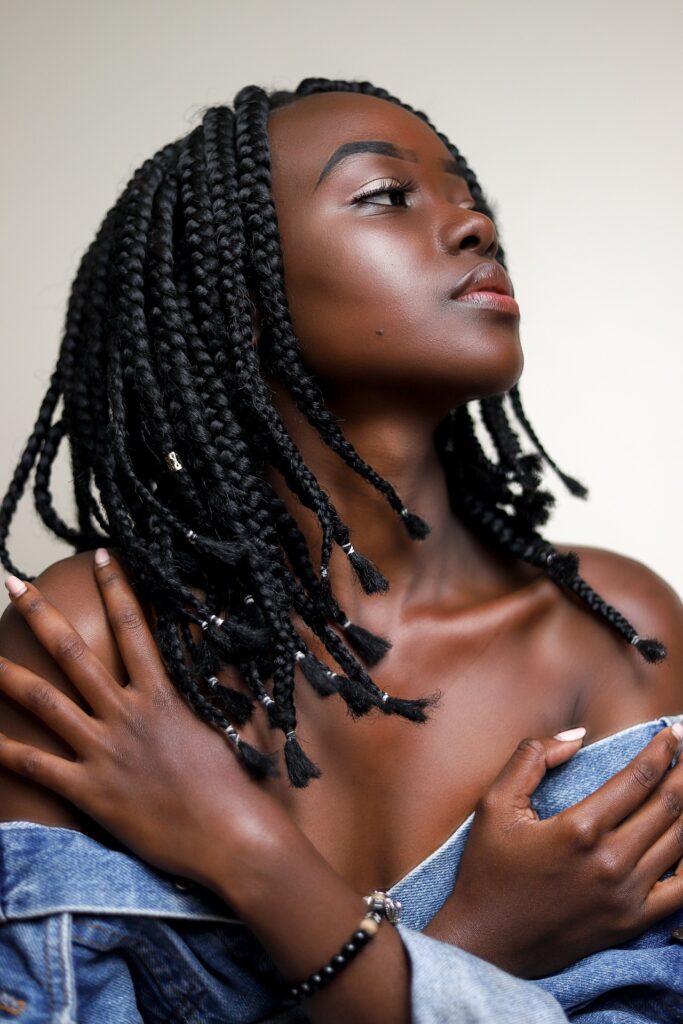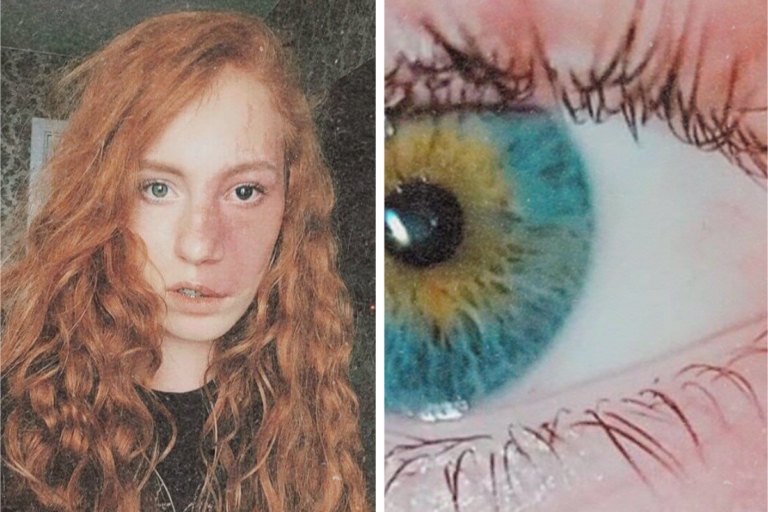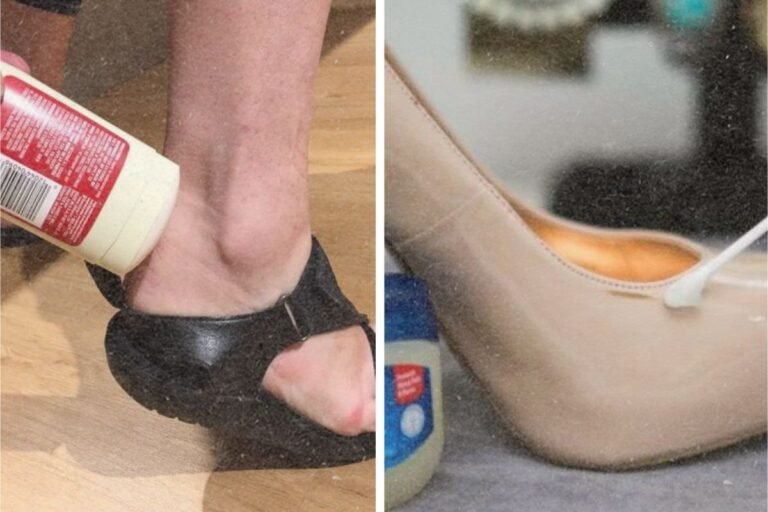Unlock the Secrets to Hair Loss: Causes, Deficiencies, and Proven Solutions
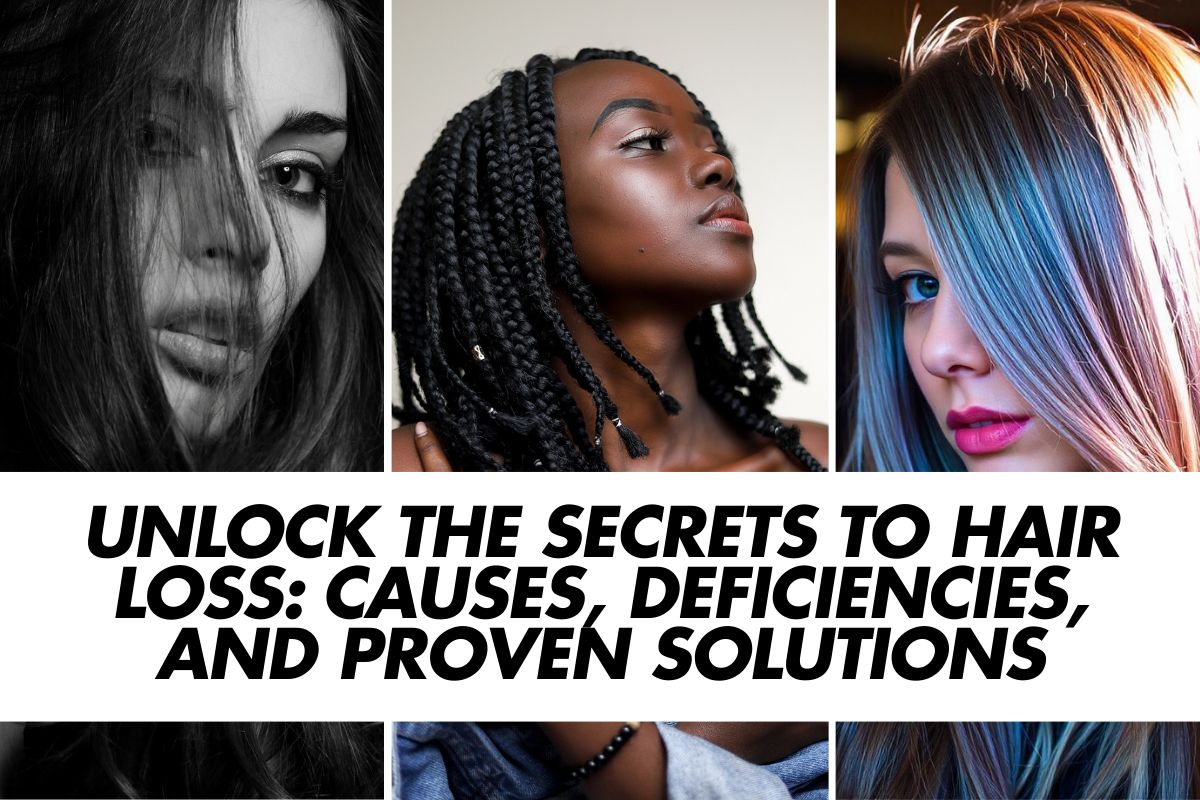
Millions of people all over the world are concerned about hair loss. We are talking sudden hair fall, thinning strand, bald slits, and every single male and female, when it, be it, young or old face this issue. Knowing what causes hair loss is a first step to finding realistic answers to the question, How do I stop my hair from falling out — and possibly even reversing or at least managing the condition, according to scientific research.

In this crash course on hair loss, we will distill the complications by reducing the entire space into a handful of questions — solutions — along with a tree-and-branch blueprint to clarify matters.
1. Main Causes of Hair Loss
Root Causes: Why Is My Hair Falling Out?
Hair loss can occur due to multiple factors, often overlapping. Understanding these root causes can help determine the best course of action.
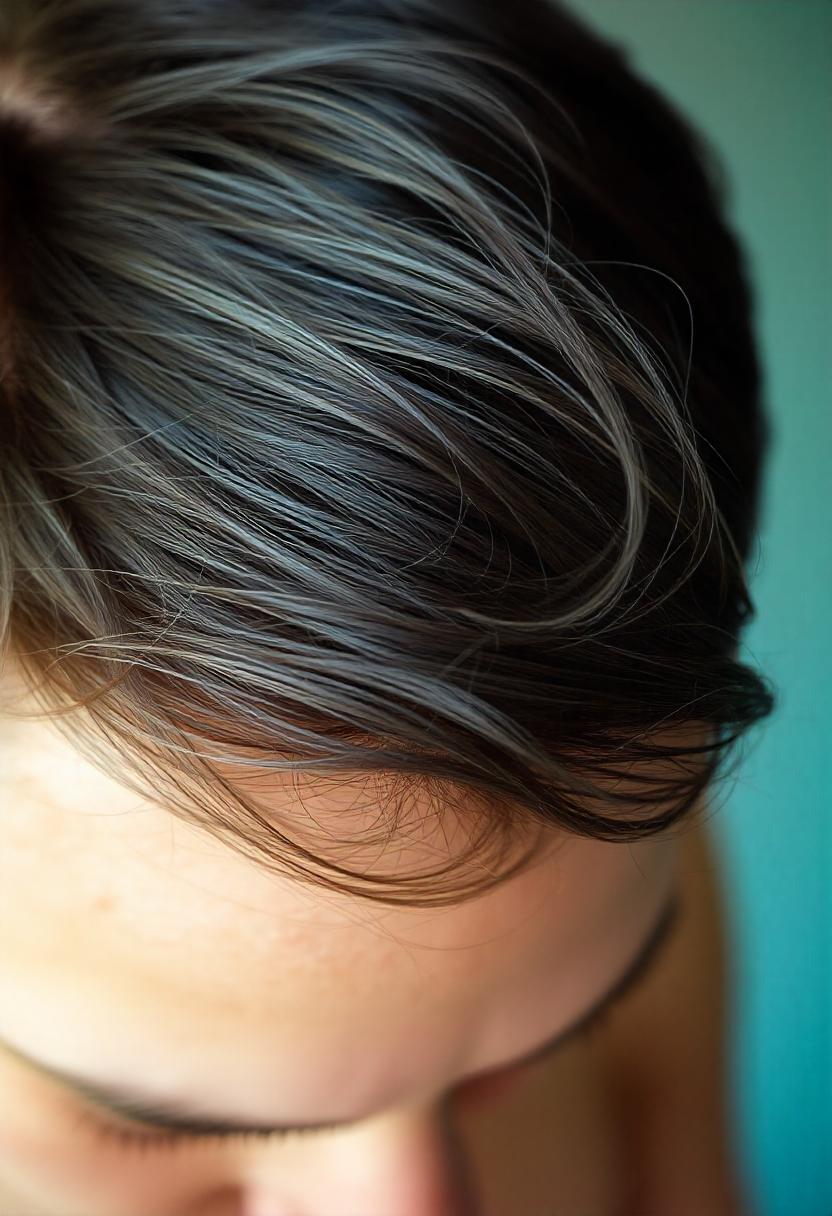
1.1 Genetic Factors
- Hereditary Hair Loss (Androgenetic Alopecia):
- The most common cause of hair loss.
- Characterized by gradual thinning over time, especially in the crown area (men) or parting line (women).
- Can begin as early as your late teens.
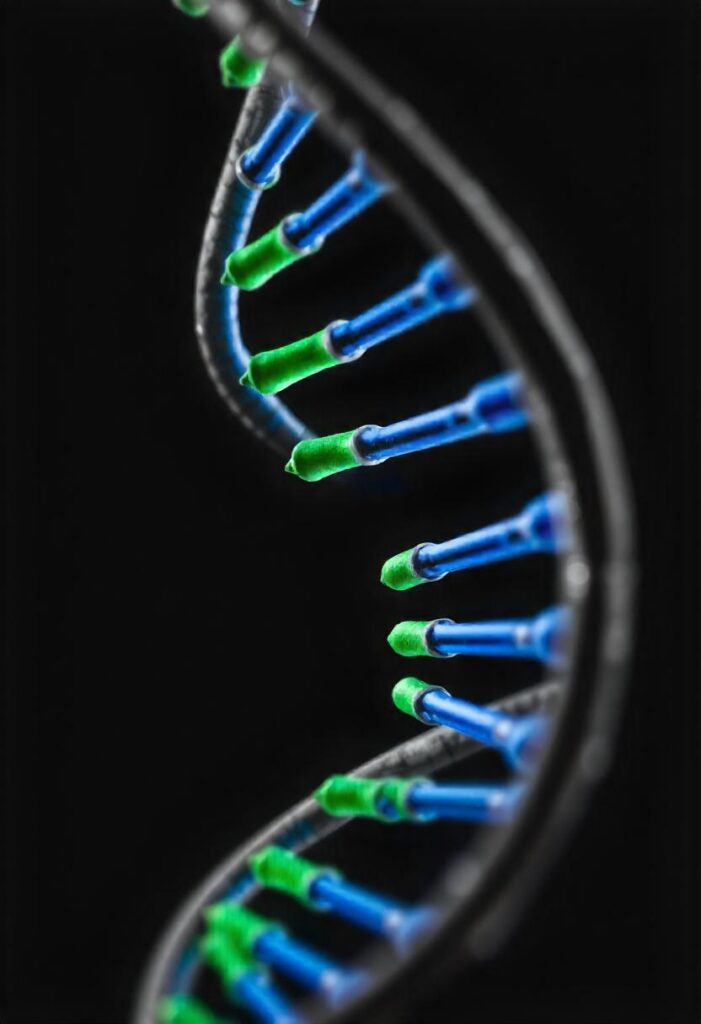
1.2 Hormonal Imbalances
- Fluctuations in Hormones:
- Menopause, pregnancy, childbirth, or conditions like PCOS can cause hair fall.
- Hormonal sensitivity (especially to DHT—dihydrotestosterone) leads to shrinking hair follicles over time.
- Thyroid dysfunction is a significant contributor, causing diffuse hair thinning.
1.3 Nutritional Deficiencies
Your diet plays a critical role in maintaining hair health. Common deficiencies include:
- Iron: Essential for oxygen transportation to hair follicles.
- Vitamin D: Stimulates hair follicles.
- Protein: A lack of building blocks for hair can halt growth.
- Zinc and Biotin: Vital for keratin production and follicle strength.

1.4 Stress and Lifestyle Factors
- Stress-Induced Hair Loss (Telogen Effluvium):
- Chronic stress pushes hair follicles into the shedding phase prematurely.
- Sleep deprivation or irregular schedules also affect hair growth.
1.5 Medical Conditions
- Alopecia Areata: Autoimmune condition causing patchy hair loss.
- Scalp Infections: Conditions like ringworm or seborrheic dermatitis can weaken hair.
- Side Effects of Medications: Chemotherapy, antidepressants, or beta-blockers can trigger temporary hair fall.
2. How to Stop Hair From Falling Out
Tree of Solutions: Effective Strategies
Stopping hair loss requires a multi-pronged approach that includes lifestyle changes, medical treatments, and improved nutrition.
2.1 Optimize Your Diet
Think of your diet as the soil for your hair. A nutrient-rich diet promotes strong, healthy strands.
- What to Eat:
- Leafy greens (spinach, kale): Rich in iron.
- Fatty fish (salmon, mackerel): Loaded with omega-3s and vitamin D.
- Eggs: Packed with biotin and protein.
- Nuts (almonds, walnuts): Great sources of zinc and healthy fats.
- Seeds (flaxseeds, chia): Encourage scalp circulation.
- Legumes (lentils, chickpeas): Provide plant-based protein and zinc.
- Avoid: Processed foods, excessive sugar, and crash dieting that strip your body of essential nutrients.
2.2 Practice Good Scalp Care
Healthy hair begins with a healthy scalp.
- Wash your hair 2–3 times a week with a sulfate-free, gentle shampoo.
- Use natural oils like coconut oil, argan oil, or rosemary oil to moisturize and nourish your scalp.
- Exfoliate with a scalp scrub once a month to clear away dead skin cells.
2.3 Reduce Stress
Chronic stress disrupts your hair cycle. Adopt relaxation techniques like:
- Yoga and Meditation: Lowers cortisol levels.
- Deep Breathing Exercises: Enhances blood flow to the scalp.
- Regular Physical Activity: Improves circulation and reduces oxidative stress.
2.4 Consider Supplements
When diet alone isn’t enough, supplements can fill the gaps. Commonly recommended ones include:
- Iron: Especially for women with heavy periods.
- Biotin: Strengthens hair keratin.
- Vitamin D: Boosts follicular health.
- Zinc: Helps in repairing damaged follicles.
- Always consult a doctor before starting new supplements.
2.5 Address Medical Causes
- Visit a dermatologist or endocrinologist to rule out conditions like PCOS, hypothyroidism, or alopecia areata.
- Manage scalp infections with medicated shampoos or oral treatments.
3. Hair Loss from Specific Causes
Branching Out: Identifying the Triggers
Hair loss doesn’t look the same for everyone. Understanding how different triggers manifest can guide you to the right treatment.
3.1 What Does Thyroid Hair Loss Look Like?
- Symptoms:
- Diffuse thinning across the scalp.
- Accompanying signs like weight changes, fatigue, or brittle nails.
- Solution: Treat thyroid imbalance with hormone replacement therapy or medications. Adding selenium or iodine-rich foods (like seafood) to your diet may help.
3.2 Hair Loss From Stress
- Symptoms: Excessive shedding in clumps or patches.
- Solution: Reduce stress levels through mindfulness techniques, ensuring 7–8 hours of sleep nightly. Telogen effluvium often resolves itself within 6 months.
3.3 Can Low Iron Cause Hair Loss?
- Yes! Iron deficiency anemia deprives hair follicles of oxygen, leading to shedding.
- Foods to Boost Iron:
- Red meat, poultry, and fish.
- Lentils and fortified cereals (paired with vitamin C for better absorption).
4. How to Reverse Hair Fall
Reversing hair loss depends on its cause. Here are the top strategies:
4.1 Medical Treatments
- Minoxidil (Rogaine):
- A topical solution that increases blood flow to the scalp.
- Works for genetic and stress-related hair loss.
- Finasteride (Propecia):
- Oral medication for men that reduces DHT levels.
- Platelet-Rich Plasma (PRP) Therapy:
- Involves injecting your plasma into the scalp to stimulate growth.
- Hair Transplants:
- Suitable for permanent hair loss from genetics or scarring alopecia.
4.2 Natural Remedies
- Apply onion juice to the scalp twice a week—it’s rich in sulfur, which boosts collagen.
- Use an aloe vera gel mask for hydration and improved scalp health.
- Regular scalp massages with warm oils enhance blood flow.
5. Boosting Hair Thickness and Growth
Key Steps to Increase Hair Thickness
- Improve Circulation: Scalp massages, dermarollers, and inversion techniques stimulate hair follicles.
- Add Collagen to Your Diet: Collagen supports hair elasticity and thickness.
- Use Volumizing Products: Choose shampoos and conditioners designed for fine or thin hair.
Natural Tips for Faster Growth
- Rosemary Oil: Research suggests that it works as effectively as minoxidil for stimulating hair growth.
- Castor Oil: Promotes hydration and strengthens roots.
- Balanced Diet: Focus on foods rich in protein, vitamins, and omega-3s.
6. Common Questions About Hair Loss
Why Am I Shedding So Much Hair?
- Could be seasonal shedding (normal), stress, or hormonal imbalance.
- If the shedding exceeds 100 strands per day, consult a dermatologist.
Can Hair Loss Be Prevented?
- Early intervention is key. Maintaining a nutrient-rich diet, reducing stress, and practicing good hair care can prevent further loss.
Conclusion: A Guide to Healthy Hair
Answer — Hair loss being a complex problem requires consistent solutions with reductions in loss and targeted solutions gradually. However, by knowing the underlying reasons and having a tailored approach for treatment — nutritional, medicinal or lifestyle — it is possible once again take charge of your hair health.
NOTES: Hair care is not only about products, it is also about taking care of your body and mind. Whether stress is your focus, your diet needs a few tweaks, or medical interventions are on the table, each choice is a step towards hair that is stronger and thicker.



